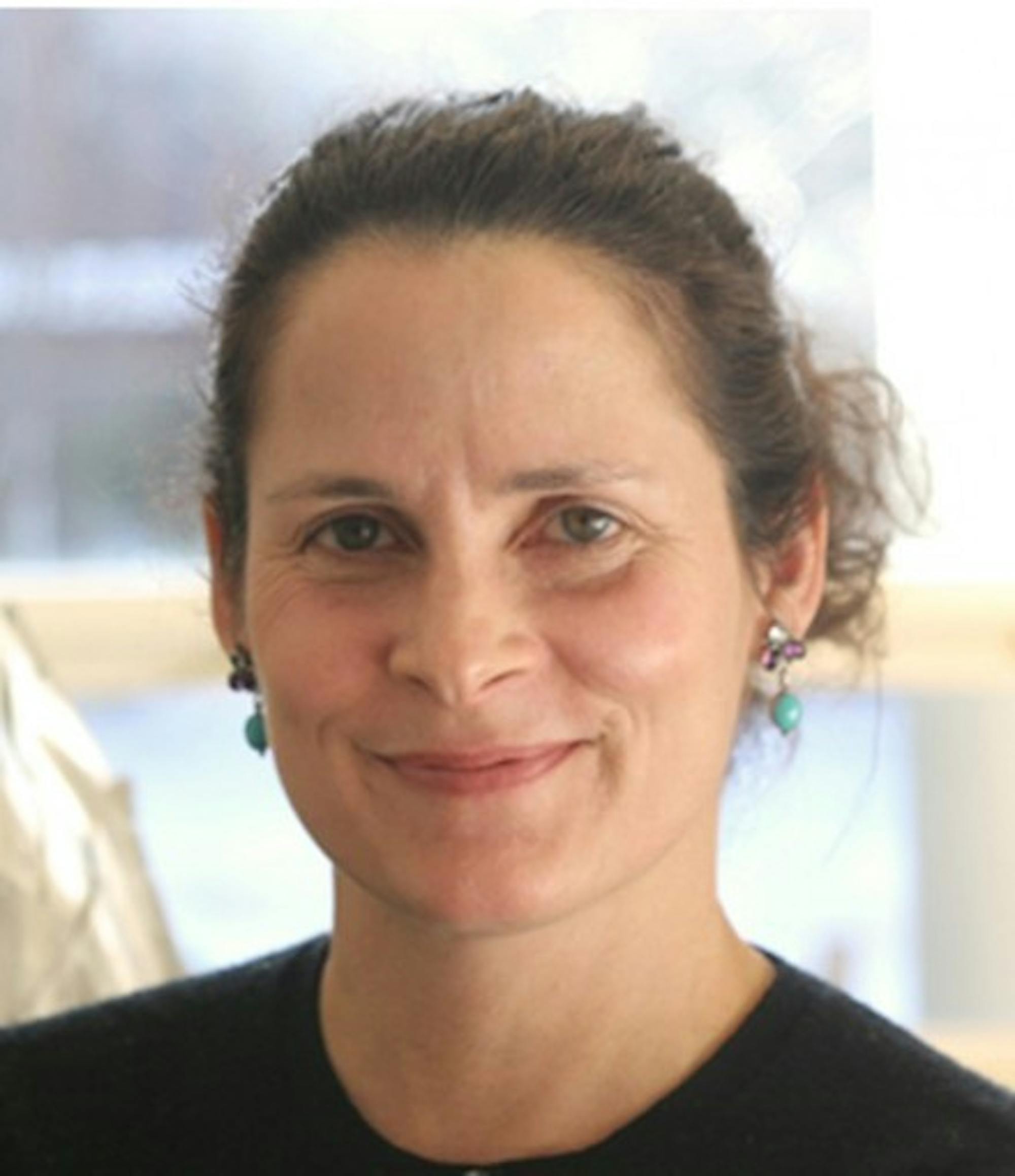As Garand pulls pieces off the shelf, explaining the assignments for which they were created and the artists behind them, it becomes clear that she intends to maintain the studio art department's devotion to its students.
"I want our department to be a place where students feel like they can explore," Garand said.
Under her direction, it appears that the department's emphasis on exploration, visual possibility and dynamic engagement will continue to develop and thrive.
Garand, who was named chair of the department this past summer, is a sculptor who works in fabrics and steel, though she also explores and teaches in other mediums. A self-described "maker" who "thinks in three dimensions," she has been sculpting since she was seventeen.
"My father was a contractor, so making has always been a part of my life," Garand said.
"The work uses specific objects and abstract form as references to the physical and psychological aspects of the individual," Garand says on the University of Western Connecticut's website. She will lecture there next week as part of the Master of Fine Arts slide lecture series. "[My] work reflects upon the past and present and of lives that are hard, full and moving," she says on the site.
Garand received her Master of Fine Arts degree in sculpture from Queens College, City University of New York and her Bachelor of Fine Arts in sculpture from the University of New Hampshire.
She exhibits her work actively and has been in over 65 exhibitions since 1984, including shows at the Whitney Museum of American Art, the Museum of Modern Art and the Brooklyn Museum.
Since 1987, Garand has received numerous grants and fellowships, including a Fulbright to France and Berlin, Germany, an Andrew W. Mellow Foundation Research Grant and a Marion and Jasper Whiting Foundation Grant that enabled her to study "The Visual and Spatial Constructs of the Bayeux Tapestry and Bayeux Cathedral" in France, as well as a number of honors in New Hampshire and Vermont.
Before coming to Dartmouth in 1995, Garand taught for 11 years as an adjunct professor at Queens College. She has also been a visiting artist at Princeton University, Colby College, the University of New Hampshire and the University of North Alabama in Florence to name a few.
Garand cites a number of contemporary artists as inspiration and points to Cycladic and Etruscan art as historical sources of influence.
Garand claims that she is "open to different kinds of work" and "believes in the individual," qualities that have undoubtedly aided her as a professor who inevitably encounters students with a wide range of skills and aesthetic sensibilities.
In art there are "no clear answers," Garand said, "which is something that Dartmouth students often have a hard time with...Art is a lot of work. It's not easy and can be frustrating. But art is a necessity -- we need it, society needs it."
Apparently a number of Dartmouth students agree. Currently there are 37 studio art majors and 9 declared minors in the department. Among those that Garand frequently sees in her classrooms are a number of athletes, engineers, pre-med students and creative writers, perhaps attracted by the department's relative flexibility.
"Students are allowed to bring who they are into the classroom," she said.
Garand cites the relative flexibility of the studio art department at Dartmouth as one of its hallmarks.
"There is no one Dartmouth style," she said, adding that the diversity is "a sign of a healthy department."
Garand also is quick to point out the impressive support of the alumni network which is something she "hasn't experienced anywhere else." The studio art department makes a concerted effort to foster such loyalty with an alumni lecture series that brings in an array of alums who work in a variety of fields. The program is intended to help majors make connections and catch a glimpse of their possible futures.
In spite of Hanover's distance from the geographic epicenters of the art world, Dartmouth's studio art department has been successful in attracting and developing a dynamic group of artists, both student and professional. With Garand at its helm, the department seems poised to continue and build upon its diverse programs, perspectives, and its receptivity to students.




![HONEYJOON_[Ines Gowland]_4.PNG](https://snworksceo.imgix.net/drt/7af2efc8-1bd1-4001-b754-e2718ce663b8.sized-1000x1000.PNG?w=1500&ar=16%3A9&fit=crop&crop=faces&facepad=3&auto=format)